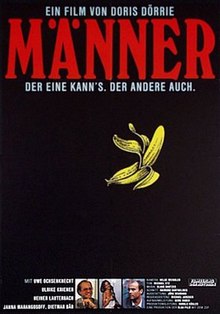
Doris Dörrie is a German film director, producer and author.
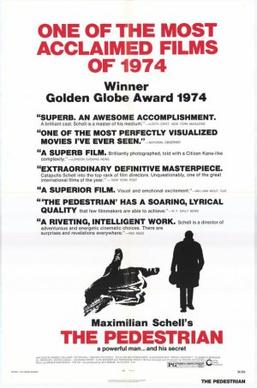
The Pedestrian is a 1973 film directed by Maximilian Schell. It is about the trial of an elderly war criminal. The film was a co-production between companies in Germany, Switzerland and Israel; the movie was distributed in the United States by Cinerama Releasing Corporation.

Artists in the Big Top: Perplexed is a 1968 West German film written and directed by Alexander Kluge. The film is made in a collage style, featuring newsreels and quotations from philosophers alongside the story of a failing circus whose owner, Leni, must decide whether her dream of a new kind of circus is too optimistic. The film is a symbolic representation of Kluge's own frustrations in trying to help stimulate the New German Cinema movement.
'38 – Vienna Before the Fall is a 1987 Austrian-West German co-produced drama film directed by Wolfgang Glück. It was nominated for the Academy Award for Best Foreign Language Film at the 59th Academy Awards. It is set in Vienna in 1937–1938 at the time of the Anschluss.
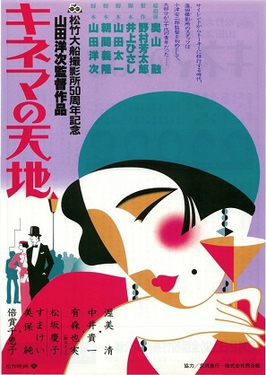
Final Take is a 1986 Japanese drama film directed by Yoji Yamada. It was Japan's submission to the 59th Academy Awards for the Academy Award for Best Foreign Language Film, but was not accepted as a nominee.

Tattoo is a 1967 West German film directed by Johannes Schaaf. The film was selected as the German entry for the Best Foreign Language Film at the 40th Academy Awards, but was not accepted as a nominee. It was also entered into the 17th Berlin International Film Festival. The film won three German Film Awards.
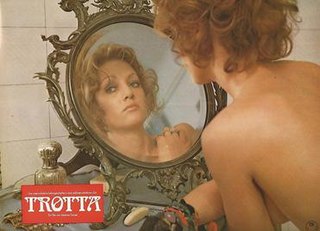
Trotta is a 1971 West German film directed by Johannes Schaaf. It is based on the 1938 novel Die Kapuzinergruft by Austrian author Joseph Roth. It was chosen as West Germany's official submission to the 45th Academy Awards for Best Foreign Language Film, but did not receive a nomination. It was also entered into the 1972 Cannes Film Festival.
The Last Image is a 1986 Algerian drama film directed by Mohammed Lakhdar-Hamina. It was entered into the 1986 Cannes Film Festival. The film was selected as the Algerian entry for the Best Foreign Language Film at the 59th Academy Awards, but was not accepted as a nominee.
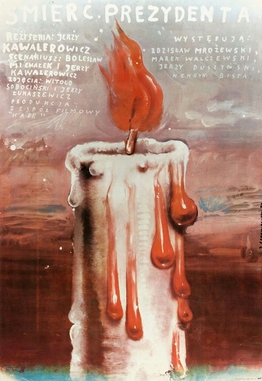
Death of a President is a 1977 Polish drama film directed by Jerzy Kawalerowicz. It was entered into the 28th Berlin International Film Festival, where it won the Silver Bear for an outstanding artistic contribution. The film was also selected as the Polish entry for the Best Foreign Language Film at the 51st Academy Awards, but was not accepted as a nominee.
Assassination in Davos is a 1974 Swiss thriller film directed by Rolf Lyssy and starring Peter Bollag, Gert Haucke and Marianne Kehlau. It is based on the assassination of the Swiss Nazi Wilhelm Gustloff by David Frankfurter in 1936. The film was selected as the Swiss entry for the Best Foreign Language Film at the 48th Academy Awards, but was not accepted as a nominee.
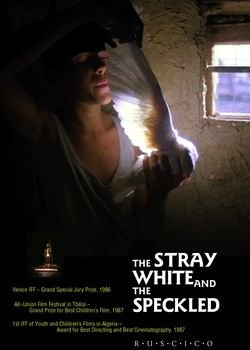
Wild Pigeon is a 1986 Soviet drama film written and directed by Sergei Solovyov. It was entered into the main competition at the 43rd Venice International Film Festival, in which it won the Special Jury Prize. The film was selected as the Soviet entry for the Best Foreign Language Film at the 59th Academy Awards, but was not accepted as a nominee.
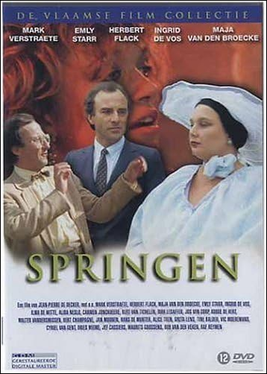
Jumping is a 1986 Belgian comedy film directed by Jean-Pierre De Decker. The film was selected as the Belgian entry for the Best Foreign Language Film at the 59th Academy Awards, but was not accepted as a nominee.
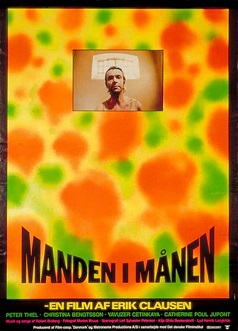
The Dark Side of the Moon is a 1986 Danish drama film directed by Erik Clausen. The film was selected as the Danish entry for the Best Foreign Language Film at the 59th Academy Awards, but was not accepted as a nominee.

Eunuch is a 1986 South Korean drama film directed by Lee Doo-yong. The film was selected as the South Korean entry for the Best Foreign Language Film at the 59th Academy Awards, but was not accepted as a nominee.
The Realm of Fortune is a 1986 Mexican drama film directed by Arturo Ripstein. The film was selected as the Mexican entry for the Best Foreign Language Film at the 59th Academy Awards, but was not accepted as a nominee.
The Last Assault is a 1986 Romanian drama film directed by Sergiu Nicolaescu. It is set during World War II, during the period when Romania joined the Allies against the Axis.
Tanner is a 1985 Swiss drama film directed by Xavier Koller. The film was selected as the Swiss entry for the Best Foreign Language Film at the 59th Academy Awards, but was not accepted as a nominee. In 1986, it won the Grand Special Prize at the 25th Karlovy Vary International Film Festival.
The Heroic Pioneers is a 1986 Taiwanese drama film directed by Li Hsing. The film was selected as the Taiwanese entry for the Best Foreign Language Film at the 59th Academy Awards, but was not accepted as a nominee.
Ant Street is a 1995 Austrian comedy film directed by Michael Glawogger. The film was selected as the Austrian entry for the Best Foreign Language Film at the 68th Academy Awards, but was not accepted as a nominee.
